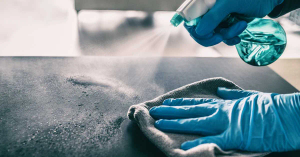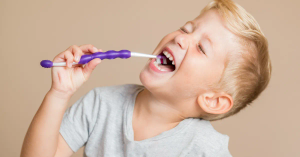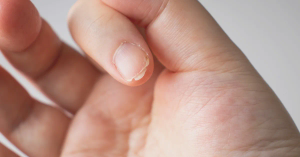Understanding Menstrual Health
Menstruation is a natural process where the body sheds the uterine lining every month. Maintaining good menstrual hygiene is important to prevent infections, stay comfortable, and ensure overall health.
Basic Menstrual Hygiene Practices
• Change sanitary products regularly – Every 4-6 hours for pads, every 4-8 hours for tampons, and every 8-12 hours for menstrual cups.
• Wash hands before and after changing pads or tampons.
• Use clean and breathable underwear to avoid infections.
• Avoid scented products like perfumed pads or intimate washes—they can cause irritation.
• Dispose of menstrual waste properly – Wrap used pads or tampons in paper and throw them in a bin (never flush them!).
Choosing the Right Menstrual Products
There are different menstrual hygiene products available. Choose the one that suits your comfort and lifestyle:
• Sanitary Pads – Best for beginners, easy to use.
• Tampons – Great for sports and swimming, but need to be changed frequently.
• Menstrual Cups – Eco-friendly and reusable, holds more fluid.
• Period Panties – Absorbent underwear for light to moderate flow.
Preventing Infections and Irritation
Poor hygiene can lead to discomfort and infections like bacterial vaginosis, yeast infections, or UTIs. Follow these tips:
• Change pads/tampons on time to prevent bacterial growth.
• Wear cotton underwear to allow air circulation.
• Avoid using harsh soaps in the intimate area—wash with warm water instead.
• Stay hydrated and maintain a healthy diet to support vaginal health.
Managing Period Discomfort
Cramps and bloating are common during menstruation. Here’s how to ease discomfort:
• Apply a heating pad on the lower abdomen for relief.
• Do light exercises like walking or yoga to reduce pain.
• Drink herbal teas like chamomile or ginger to soothe cramps.
• Eat iron-rich foods (spinach, lentils, nuts) to replenish lost nutrients.
• Take pain relief medication (like ibuprofen) if necessary, after consulting a doctor.
Tracking the Menstrual Cycle
Keeping track of periods helps in understanding cycle patterns and spotting irregularities.
• Use a period tracking app (like Flo, Clue, or My Calendar).
• Mark it on a calendar—track the first and last day of periods.
• Notice any changes like heavy bleeding, missed periods, or severe pain—consult a doctor if anything seems unusual.
Dealing with Period Stigma and Myths
Many cultures still have taboos around menstruation. Encourage open conversations and debunk common myths:
• Myth: Period blood is dirty.
Truth: It’s just the uterine lining—completely natural.
• Myth: Girls shouldn’t exercise during periods.
Truth: Light exercise can actually help reduce cramps.
• Myth: Taking a bath during periods is harmful.
Truth: Bathing is important for hygiene and relaxation.
Teach girls that menstruation is not something to be ashamed of—it’s a normal and healthy process.
When to See a Doctor?
Consult a doctor if your period:
• Is too heavy (changing pads every 1-2 hours).
• Lasts longer than 7 days.
• Is missing for 3 months (if not pregnant).
• Causes severe cramps that affect daily activities.
• Comes with unusual discharge, bad odor, or itching.
Final Thoughts
Menstrual health and hygiene are essential for every girl’s well-being. By following proper hygiene practices, tracking cycles, and addressing discomfort effectively, periods can be managed with ease and confidence. Encourage open discussions, break period taboos, and ensure every girl knows that menstruation is a sign of a healthy body, not something to be embarrassed about!








